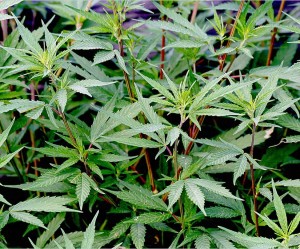 As Vermont considers whether to join other states in legalizing recreational cannabis use, clinicians and the public alike are struggling to find good information about the risks, or lack thereof, that may be involved. Complicating matters as the issue becomes more and more political is the phenomenon of dueling research evidence, as folks who are already strongly for or against legalization cherry pick the studies that support their view.
As Vermont considers whether to join other states in legalizing recreational cannabis use, clinicians and the public alike are struggling to find good information about the risks, or lack thereof, that may be involved. Complicating matters as the issue becomes more and more political is the phenomenon of dueling research evidence, as folks who are already strongly for or against legalization cherry pick the studies that support their view.
Recently, the top-tier journal, Addiction, published a review of the evidence entitled, “What has research over the past two decades revealed about the adverse health effects of recreational
cannabis use?” The paper was authored by Wayne Hall who is a Professor and Director of the Centre for Youth Substance Abuse Research at the University of Queensland, Australia. With 165 references, the article strives to summarize what is really known on the subject by focusing on studies published from 1993 to 2013 that employ more solid methodological techniques.
A summary of the key findings are as follows.
- The risk of a fatal overdose is extremely low (with the possible exception of some cardiovascular risks as described below).
- An approximate doubling of the risk of a car accident, a rate which is elevated overall but lower relative to alcohol intoxication.
- Use during pregnancy has been associated with reduced birthweight and possibly lower offspring cognitive abilities.
- For chronic cannabis use, there evidence for both withdrawal and dependence at a rate of approximately 10% among regular users.
- Furthermore, research supports the hypothesis that regular cannabis use roughly doubles the risk of psychosis. Newer studies have helped argue against “reverse causation” mechanisms (i.e. that people with psychosis tend to use cannabis rather than cannabis causing psychosis) but “common-cause” mechanisms (i.e. that there is another factor causing both psychosis and cannabis use) have not been completely excluded.
- Deficits in verbal learning, memory, and attention and IQ have also been associated with chronic use and may not be reversible with cessation. These effects may be strongest for those who begin using cannabis in adolescence.
- Poorer educational outcomes have also been documented in some studies, although a recent twin study showed no difference in leaving school early among twins discordant for early cannabis use.
- The gateway hypothesis that cannabis leads to the use of other drugs continues to be supported.
- Cardiovascular risks, particularly among older adults, have also been documented as well as testicular cancer.
The author concluded that more recent and better methodological studies have generally strengthened the evidence that links cannabis with a variety of negative health outcomes, particularly for adolescents.
While the paper comes across as relatively unbiased and points out areas where the link with adverse events is not well documented, I’m sure those more inclined towards legalization will find Dr. Hall’s review to be somewhat biased (especially anything published in a journal called Addiction). Nevertheless, I found this paper to be quite useful in helping me sort out the swirling opinions out there at a time when some good information is sorely needed.
Reference
Hall W. What has research over the past two decades revealed about the adverse health effects of recreational cannabis use? Addiction 2015; 110:19-35.

